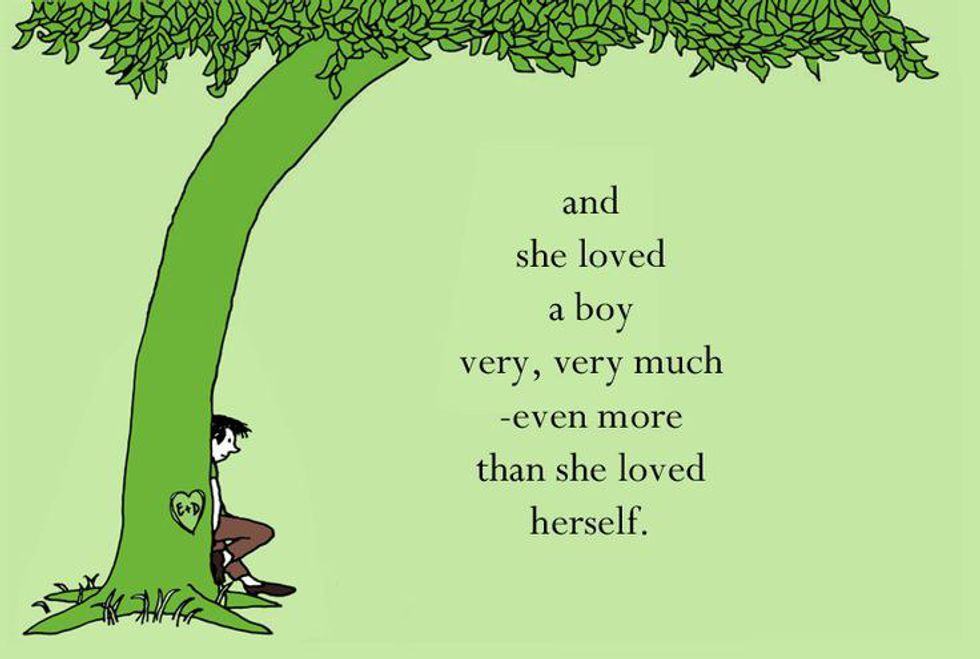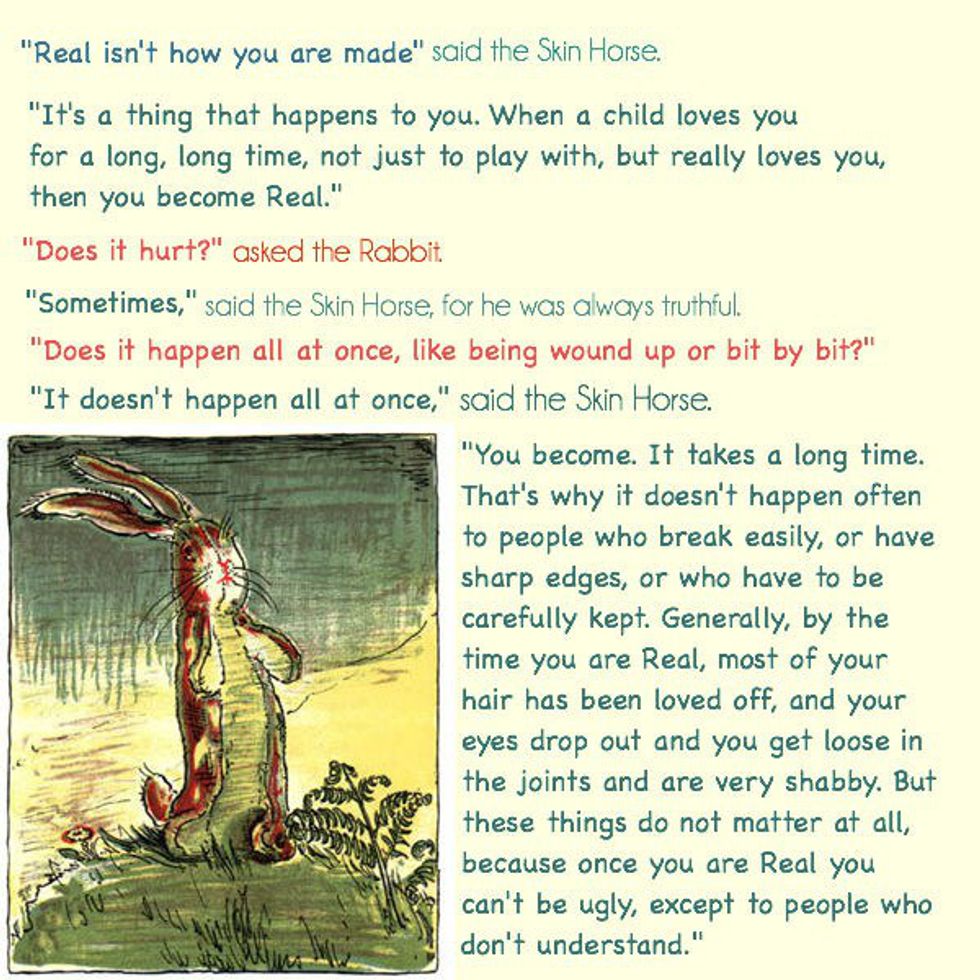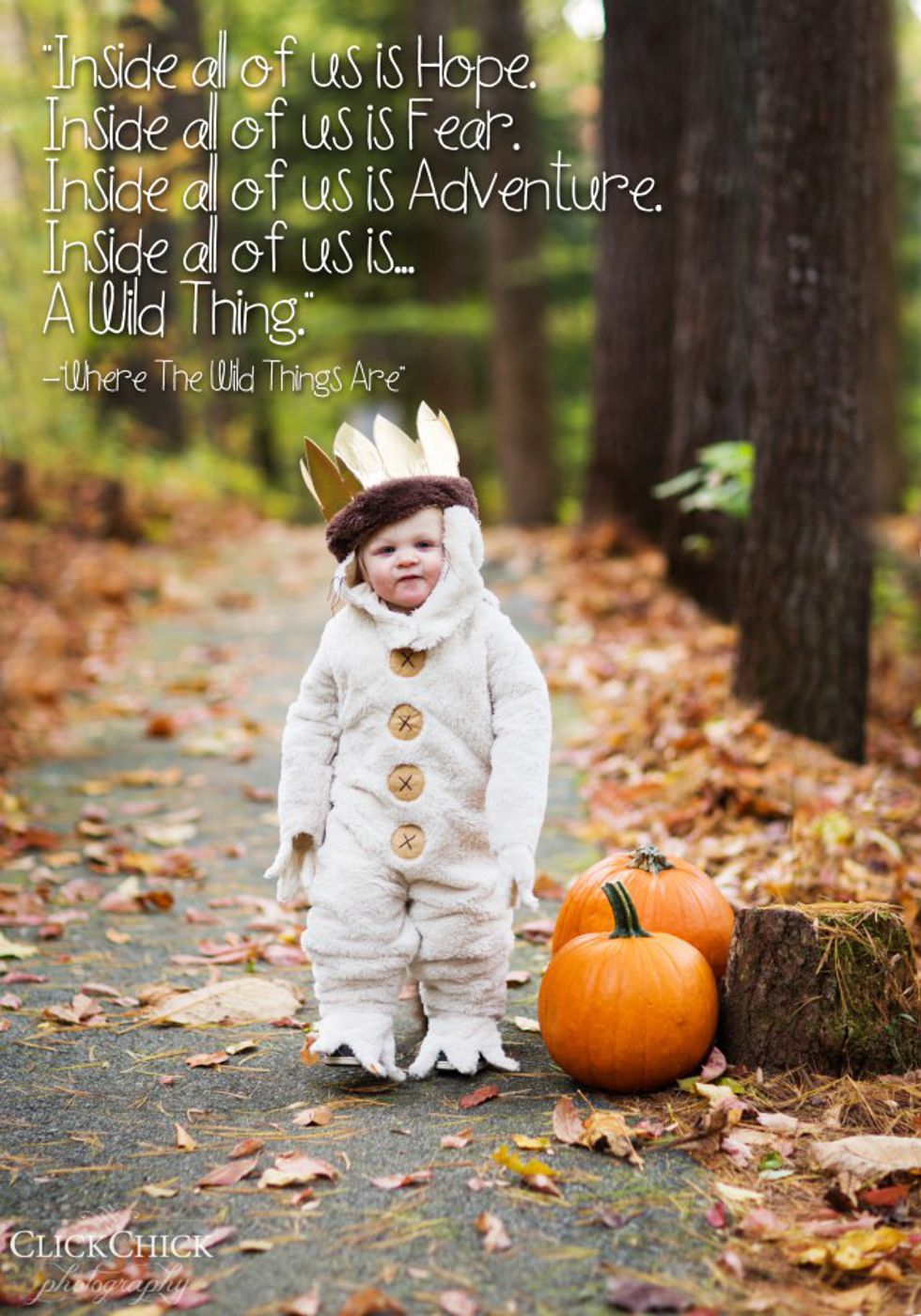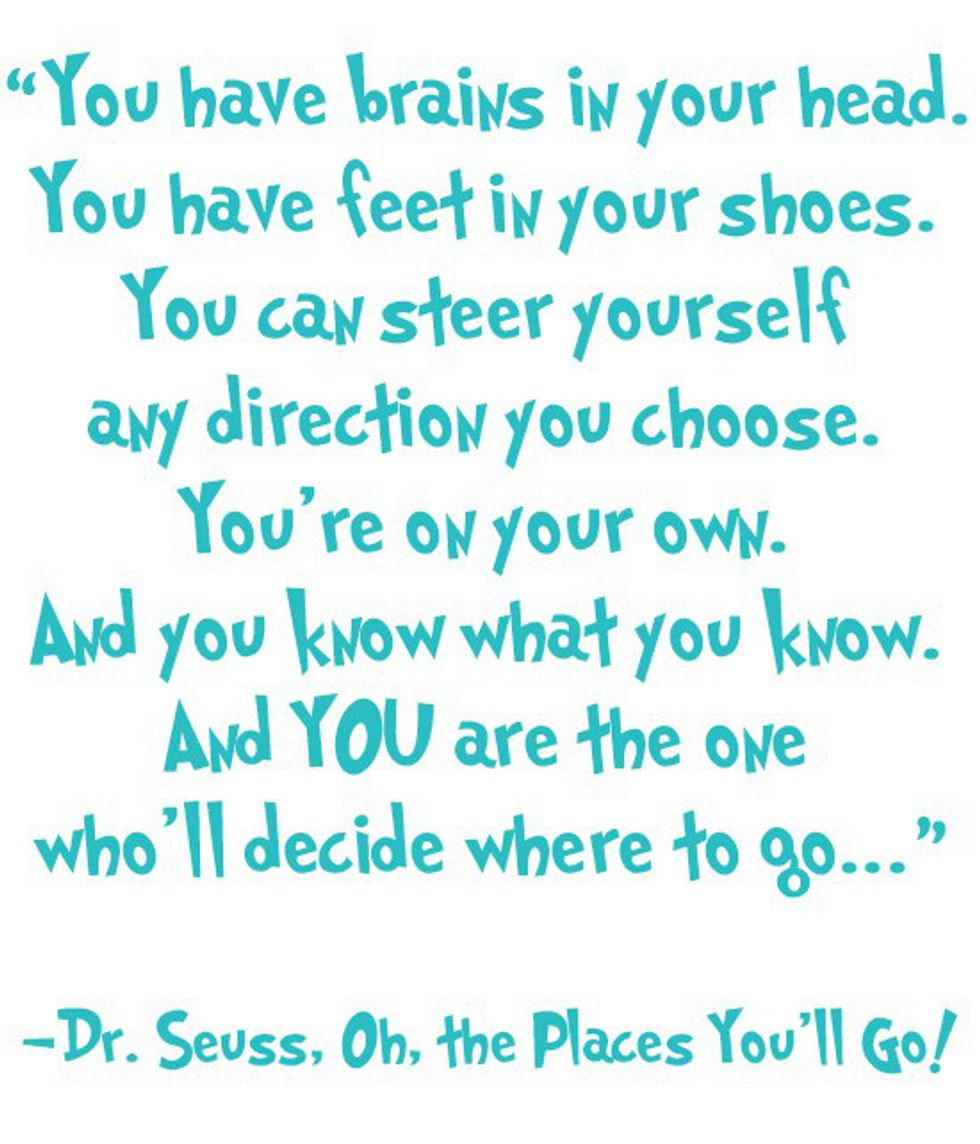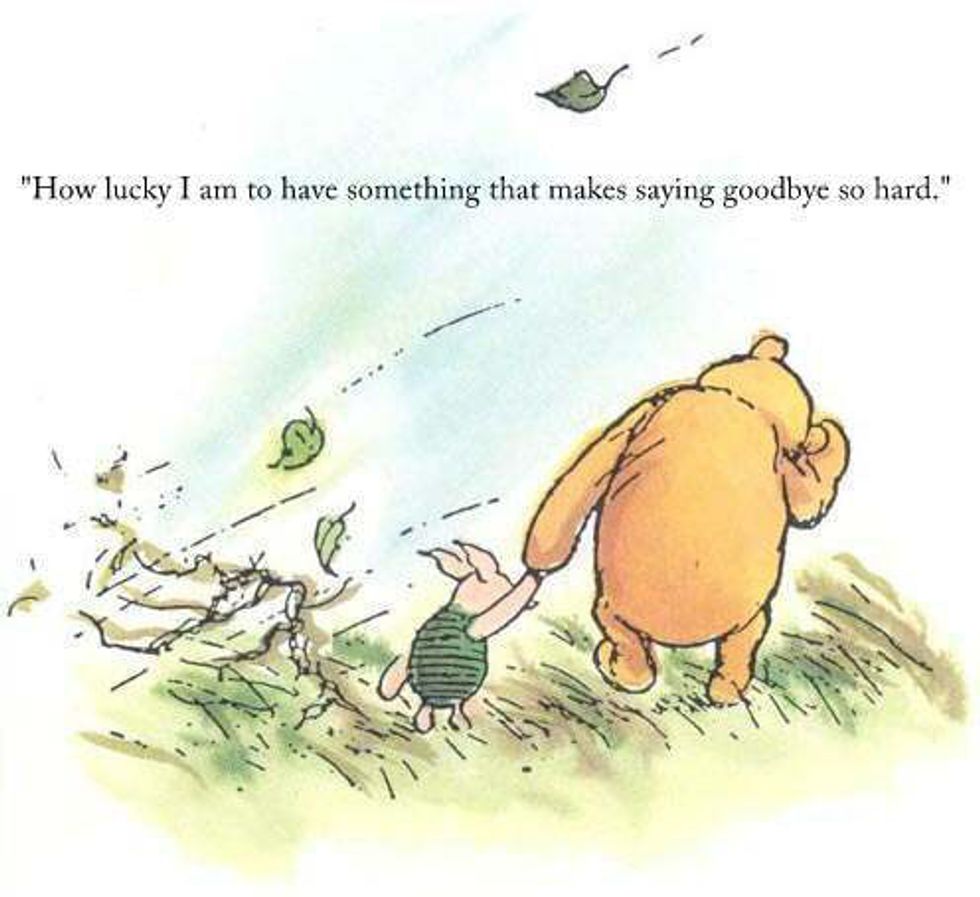In reflecting on my childhood. I vividly remember the numerous stories my parents read to my sister and me. The stories revolved around talking animals, adventurous children, a magical universe and mundane activities such as going to school. Now, as an adult, I’ve read these stories to children and realized their simplicity. Can I be a children’s author? “The cat is happy. The cat likes to play outside….” Seemingly easy, right? The vocabulary is rudimentary. The text is easily comprehensible… However, after further investigation, I’ve discovered that children’s stories, though seemingly simple, instill important life lessons. They can remind adults of the virtues once taught by our parents and other adults in our lives. The following books epitomize such lessons:
1. "The Giving Tree"
This was easily one of my favorite books as a child. The book illustrates the life-long relationship between a boy and a tree. The tree, as the title implies, is generous and selfless as she provides the boy with shelter, nurture and companionship. In an individualistic society, we often find ourselves consumed with our own problems that we tend to neglect other people's needs. This book reminds us to value our loved ones and make sacrifices for them -- even if by simply spending time with them.
2. "The Velveteen Rabbit"
"The Velveteen Rabbit" revolves around a stuffed rabbit presented to a boy as a Christmas gift. The rabbit questions his significance as the boy hardly plays with him and the "more advanced" toys deem him as inferior. However, another toy, the wise Skin Horse, assures the rabbit of his worth. The Skin Horse teaches the readers that society's beauty standards are superficial. The velveteen rabbit may not be the most aesthetically pleasing toy but that doesn't matter. Beauty comes from within. Lastly, the most important lesson (in my opinion): love, though sometimes painful and unpredictable, provides so much joy. Be vulnerable. Embrace love.
3. "Where the Wild Things Are"Max, a rambunctious and misunderstood child, ventures into the magical land of the Wild Things, frightful looking creatures. He is eventually crowned King of the Wild Things and celebrates his authority. Ultimately, he decides it's best to return home and abandons his position. In a mere 338 words, author Maurice Sendak illustrates that as humans it is natural for us to exhibit anger and attempt to escape our problems. As a child, Maurice Sendak experienced misery. Many of his family members were killed in the Holocaust. So, Sendak acknowledges that childhood is not always blissful and carefree. Similarly, Max is unhappy with his family and accordingly, acts against his parents. Through imagination, Max tames his "wildness" or anger. Sendak reminds adults of the power of imagination, especially in resolving our inner demons.
4. "Oh, the Places You’ll Go!"
As the quintessential high school graduation story, Dr. Seuss' story is very relevant for me. I started college this year, an exciting yet daunting experience. This book acts as the ultimate motivational speech or pep-talk. As we begin any new experience, Dr. Seuss reminds us of our self-worth. We will thrive even though we may be fearful. We may even experience loneliness and rejection but we must not succumb to defeat. The power of optimism prevails.
6. "Winnie-the-Pooh"
So the next time you read a children's book, what will you learn?




